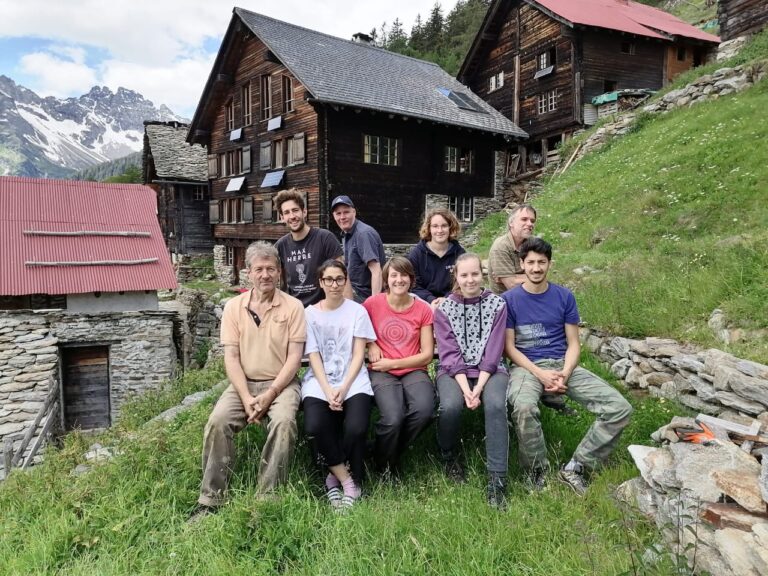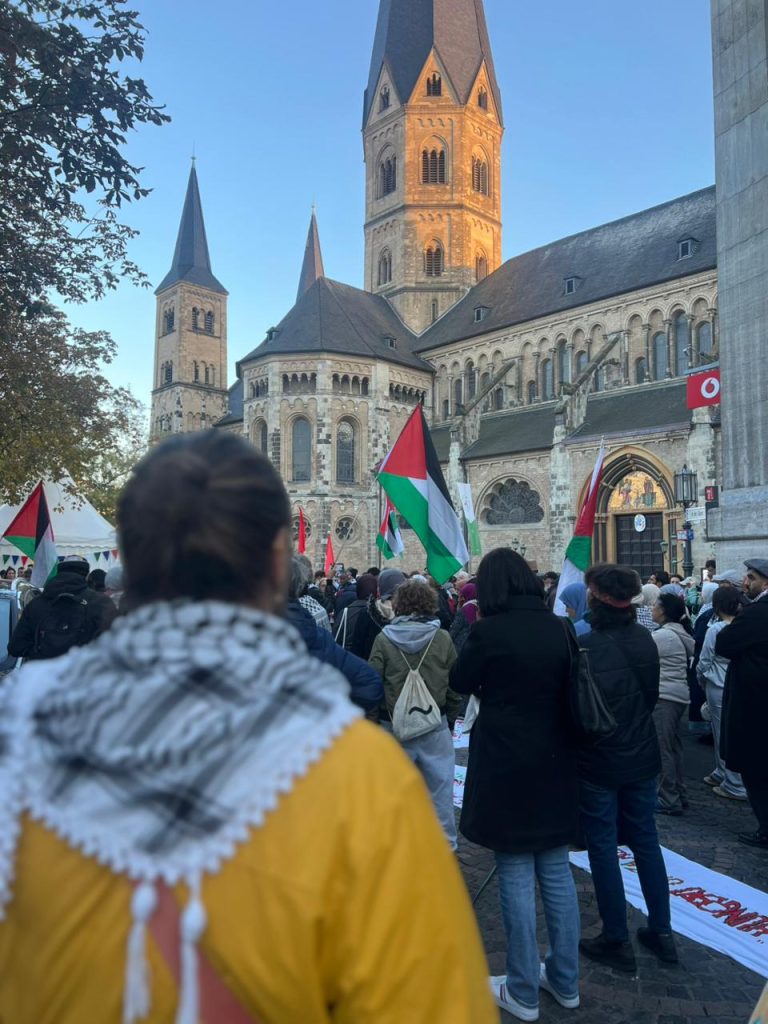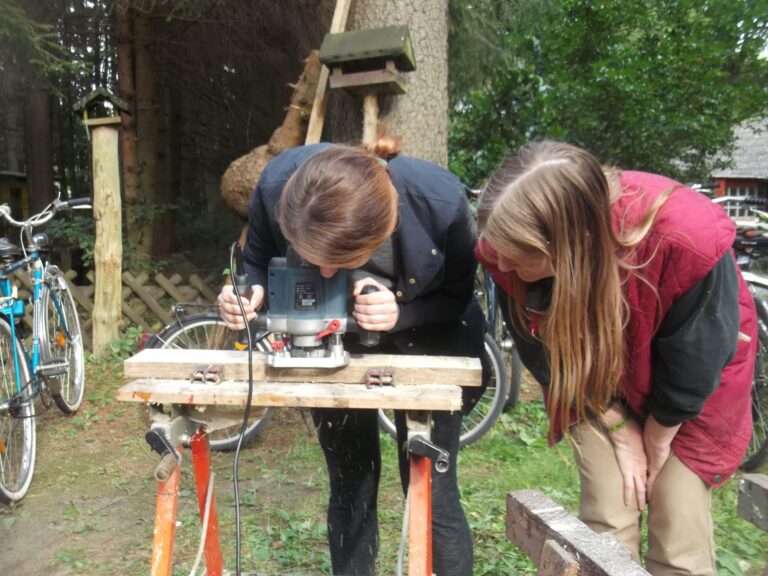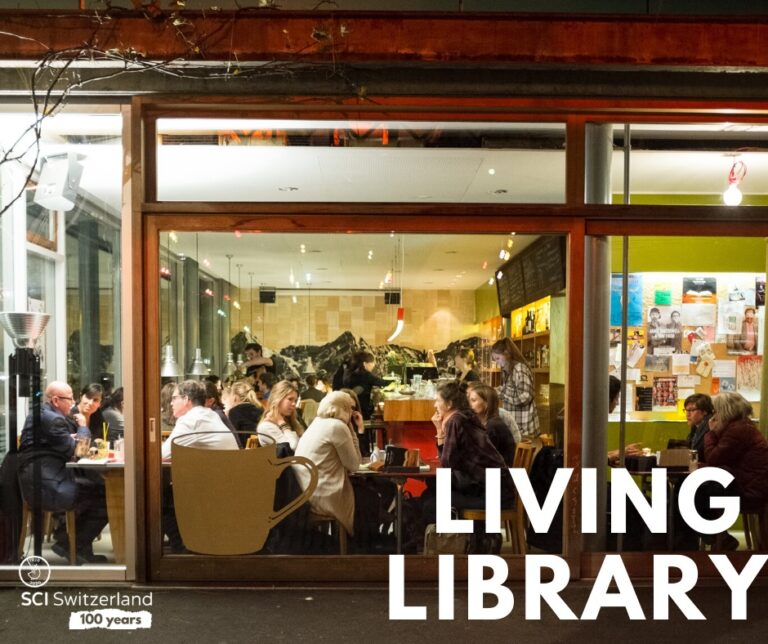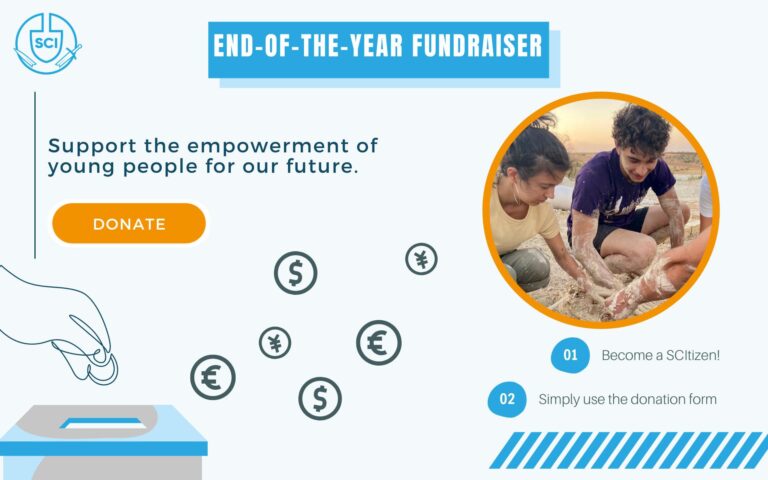Tracing the roots of international voluntary service
Introduction
In an effort to ensure regional understanding and cooperation 3 voluntary originations UVIKUITA (Tanzania), Zimbabwe Workcamps Association (ZWA) and South Africa Volunteer Workcamp Association (SAVWA) forged a partnership for a 40 days regional workcamp which started in Tanzania, moving to Zimbabwe and ended in South Africa. By tracing the roots of IVS in these 3 African countries, participants had to explore and experience local cultures, social behaviors, and languages, natural and cultural heritage and connect themselves with the communities and challenge their perspective or mind set in order to develop new views and ideas as Youth Leaders. In a nutshell, it was an experience of learning and unlearning African voluntarism to have a better understanding of the societies and also contribute to community development in the frame work of International Voluntary Service. The participants had to travel across 4 countries using buses as way to promote green travel and this is normally the African day to day experience. During this, they also had to experience volunteers’ mobility on the boarders.
This workcamp was very diverse, rich with energetic and enthusiastic youths from different voluntary organization around the world, namely:
- UVIKIUTA – Tanzania
- ZWA – Zimbabwe
- SAVWA – South Africa
- KVDA – Kenya
- SCI – France
- NICE – Japan
TANZANIAN PHASE: 1 – 10 JULY 2024
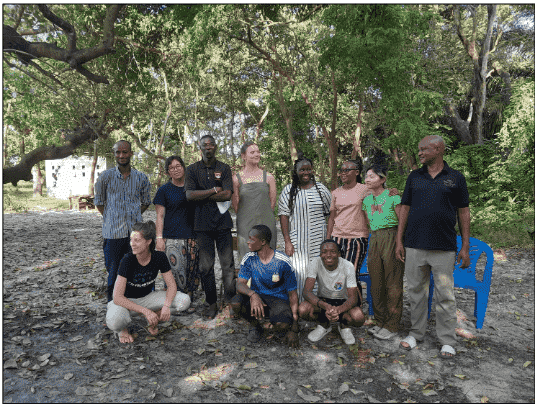
The Tanzanian workcamp was themed, Environmental Leadership. Participants were involved in learn by doing activities, to develop an urban garderning and organic farming. As volunteers, we took part to gardening activities in the Chamazi eco-village with the help of Ouzin, involved for many years in the organisation as landscape designer and campleader. She has been trained to permaculture technics that she was shared with us.
We have learned that the eco-village project is focusing on three dimensions:
- Promoting community living because the garden is shared with people from the local community
- Modernisation of technics with the use of permaculture methods
- “Ubuntu”: a philosophy for Africa meaning that you can not be satisfied by yourself instead of capitalist philosophy that is always looking for profit
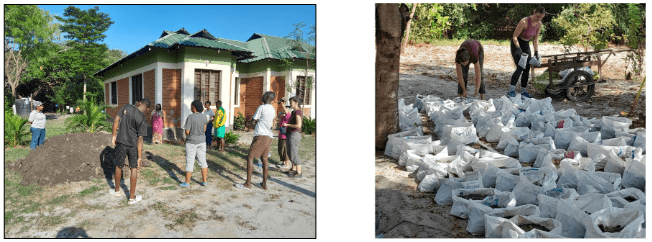
Through the act of planting medicinal plants and organic vegetables during this workcamp, the idea was to raise awarness to young people and people in the community about the impact of fast food on our health and on our environment and to return to spiritual connections to the earth and remember that whatever we do has an impact on our environment. The urban gardening is very environmental friendly as it is a form of recycle of empty plastic containers which are then filled with manure and soil, this type of gardening save space and keeps the environment clean.
One the third day, our group of 15 volunteers went to Dar es Salam trade fair “Saba saba” that is largest market in East Africa. Many NGOs, companies of every size and public institutions were there. As volunteers in an environmental organisation, we were coming there to connect with climate change issues.
As Youth development organisation, Uvikuita also organised on Saturday a football tournament for Young men. On that day our team of volunteers was invited to prepare a message to deliver for the players and participants. That is how we did a presentation in Swahili to explain what are environmental leadership and IVS (“Najitolea bure” ) through the use of a theater play and drawings that we prepared in a collective way during the 2 days before.
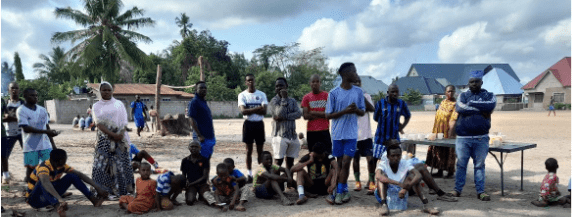
The last day before to travel to Zimbabwe was dedicated first to reflect on our practices and environnmental issues in our countries through a Workshop in the morning and then to share our experience with youngsters by participating to the Volunteering information day.
On daily life, the group of volunteers had to organise themselves as a collective to insure that the different duties in the house (cleaning, washing dishes…) were well done and fair distributed, with the help of their campleader Emy.
Last but not least, every day was a cultural evening planned. After dinner, one volunteer was presenting his or her culture to the group of volunteers using different tools to make discover their country (music, food, game, dancing…).
THE JOURNEY TO ZIMBABWE
The journey started early in the morning of the 11th of July, participants were very enegetic as they knew that its going to be exciting travelling miles for 3 days exploring the beautifull landscape of 3 countries (Tanzania, Zambia and Zimbabwe). The jouney was filled with joyfull moments with the 6 volunteers who had become more than a family, it was interestng trying new food, fruits and bevarages along the way. It took one day from Dar es Salam to reach Tunduma the boarder town of Tanzania entering Zambia.
After a long day and night, the participants were exhusted and they had to cross the boarder at midnight but unfortunately this wasn’t a smooth process as they face challenges which are related to passport power, political relations of countries and corrution. This made the volunteers to spend about 6 hours at the boarder. However all things were sorted later on and the volunteers had to continue with their journey to Zmbabwe. In Zambia there was so much to explore during the trip and and the participants had to sleep along the way from Lusaka the capital city of Zambia to Zimbabwe, crossing the boarder was very smooth. In total, the journey from Dar es Salam to Harare took 3 days.

ZIMBABWEAN PHASE: 13 – 24 JULY 2024
The second phase of the camp was hosted by Zimbabwe Workcamps Association in Goromonzi. The voluntary organisation had recruited local participants across Zimbabwe to join the caravan participants and the camp started with posivite energy with a diverse group of youth volunteers.
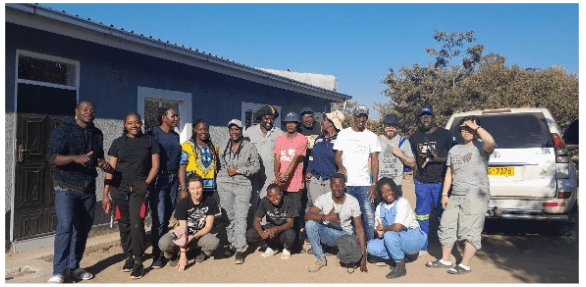
The Zimbabwean phase covered a number of topics such as:
- Environmental conservation
- Peace and Social justice
- Cultural Heritage
The camp activities were community oriented, whereby the Demberere Village, Goromonzi worked together with ZWA and come up with activies which the community needed the most, to ensure local development and cultural exchange through the participation of both parties
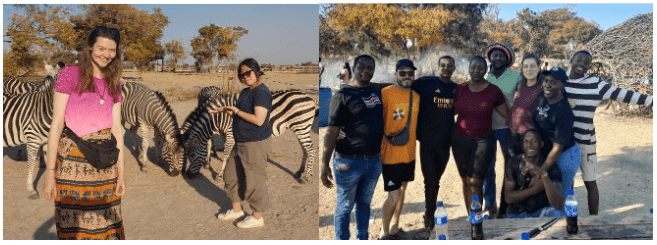
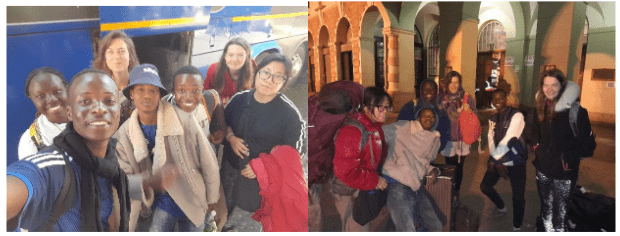
SOUTH AFRICAN PHASE: 25 JULY – 4 AUGUST 2024
For the final stretch of the Caravan Workcamp project, the 7 volunteers joined the activities of SAVWA centre in Pretoria, this time in an urban area and with colder temperature. The SAVWA founders, Enock and Dorcas graced the Volunteers with a warm welcome to the last phase of the caravan.
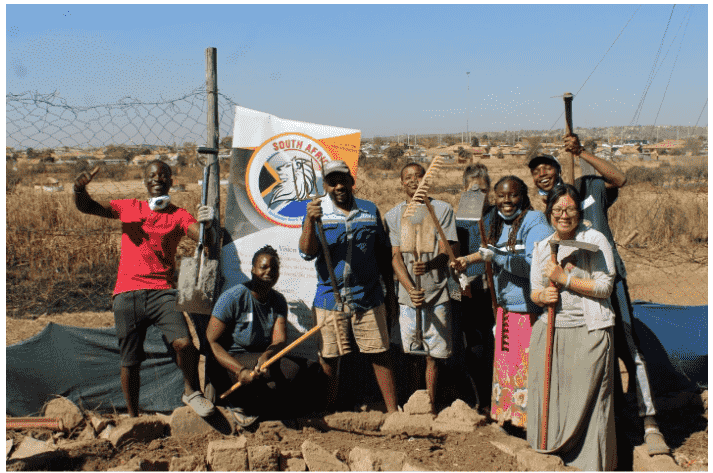
The South African phase ran with 2 main themes which are Organic gardening and the after school kids program.
Every morning then, we took part to activities in the garden such as preparing the ground for the organic garden using the no-dig method and fixing the garden fence. The volunteers had to learn the advantages of organic gardening which includes:
- Chemical-free produce, this avoids the use of synthetic pesticides, herbicides and fertilizers, ensuring healthier produce.
- Environmental friendly, this method promotes soil health, conserve water and reduce pollution.
- Reduces soil erosion among many other advantages.
This garden is use for pedagogical activities but it also produce vegetables that are shared with kids and youngsters in the local community. The gardening method was very environmental friendly and simple as it do not require main power. It uses card-boxes to prevent weeds and stones designed to form beautiful shapes which saves space.
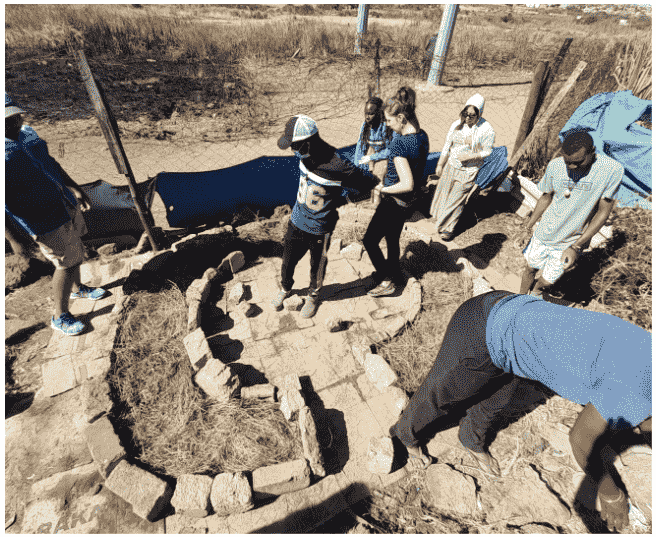
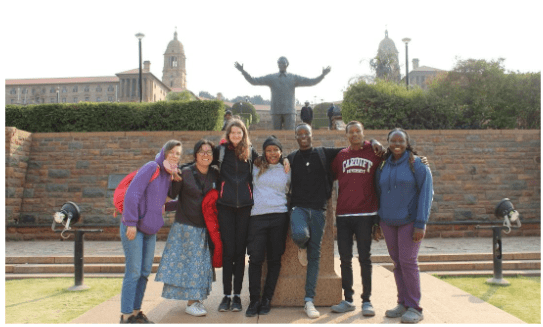
The last day of the South African phase was for the overall evaluation of the caravan camp. The participants received certificates from SAWVA on behalf of its partner organisations ZWA and UVIKUTA. The caravan workcamp ended with a farewell party and volunteers shared the last moments celebrating the 40 days of happiness, challenges, excitement, teamwork, among other experience during their expedition of tracing the roots of International Voluntary Service from East to Southern Africa.

